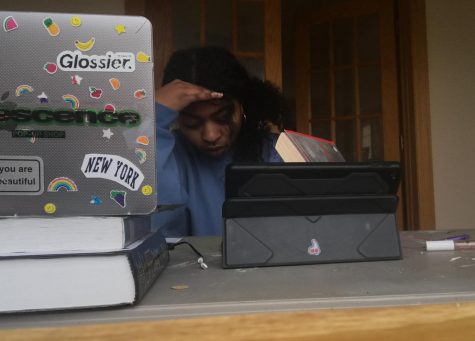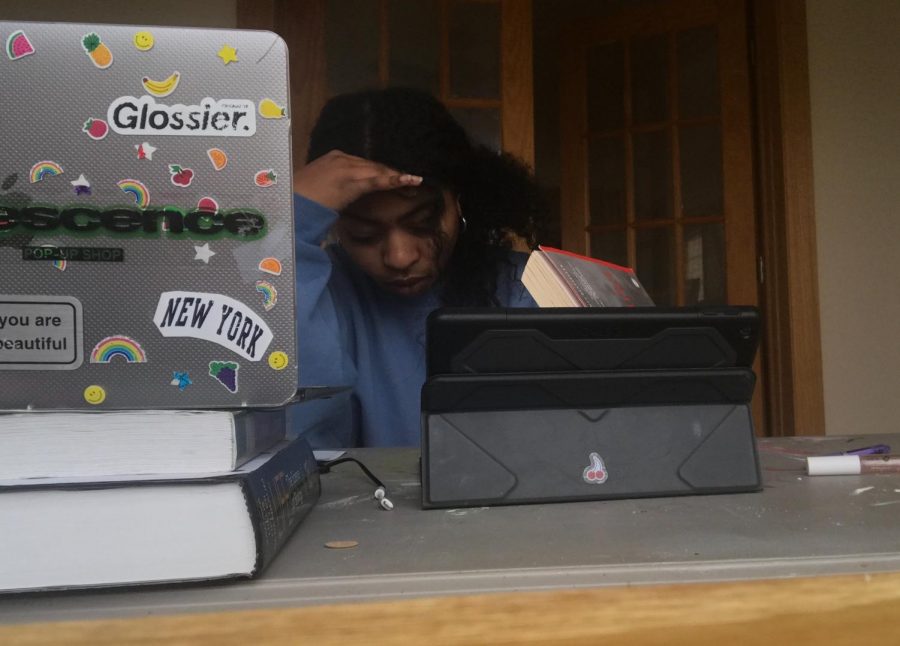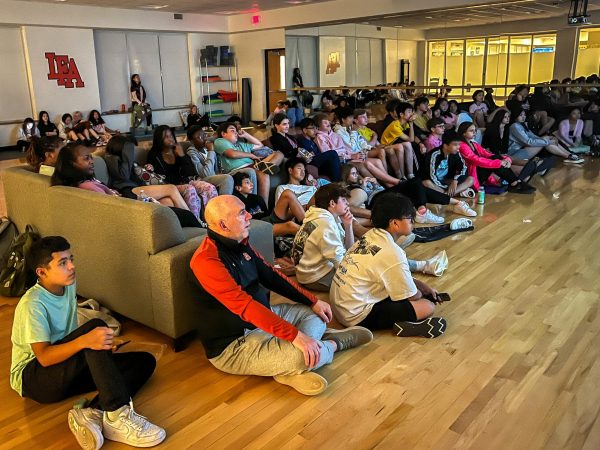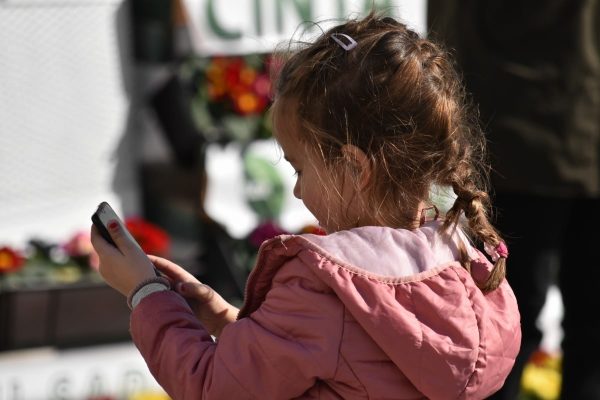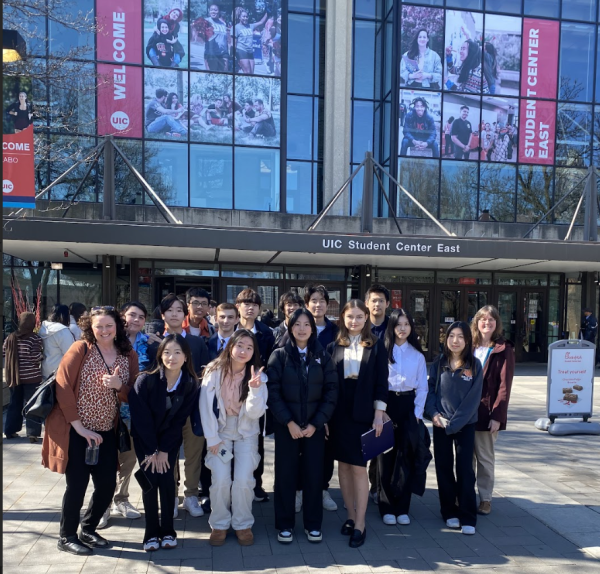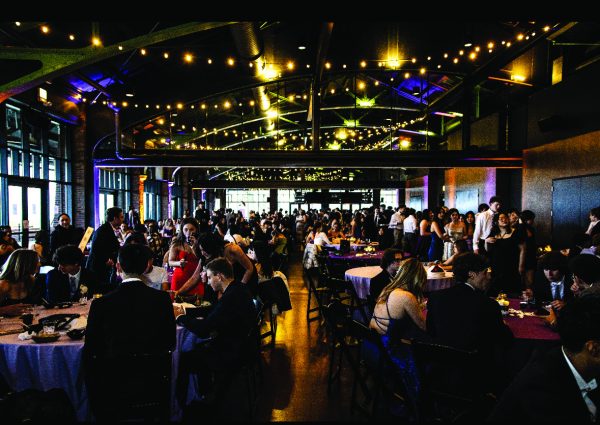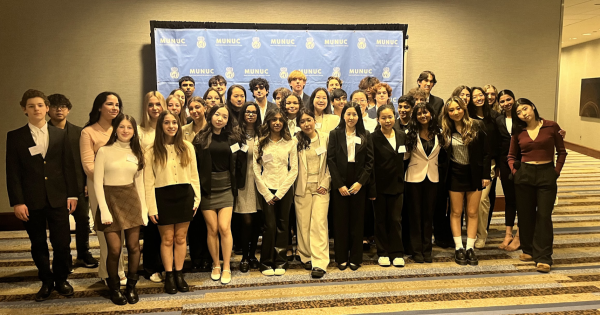Social changes and the impact of coronavirus
Photo by Tyler Watts
Student Tyler Watts ‘21 works diligently and values her free time more deeply now that her work-life balance is altered by e-learning.
May 4, 2020
When we are no longer sheltered in place, how might society change as a result of what we are undergoing currently? The day we can go outside without fear of infection will reset life rather than resume what once was. This will not feel like return from an extended holiday, and no two people will have endured the pandemic the same way, so how will we move forward?
We will demand reform.
As the setup of many social institutions has greatly changed, the United States government and various organizations have begun working to alleviate the plights of those directly impacted by closures– whether it is through stimulus checks, free iPads for public school students in need, or converting schools to food banks. Now that the general public is remaining hyper-aware and staying informed, we have seen what can be done to help those in need. Suffice it to say that this is the tip of the iceberg, as the social reforms many have been pushing for years will likely gain momentum. If we have had these resources all along, why did it take a pandemic to enact change and help the people who need support? As we all endure and overcome the novel coronavirus together, may we also exit this adversity with greater empathy and awareness and with the intention to improve our government and the greater community rather than return to outdated conventions.
Our relationships with our devices will change.
The internet is the glue keeping the fragments of the lives we once led together. Work and school environments have grown extremely dependent upon online resources and virtual interaction to disperse communication and foster a sense of familiarity over Zoom and Google Meets. While we must appreciate the privilege of access to such resources and electronic tools that help us keep our jobs, livelihoods, and daily routines in orbit, that isn’t to say that the adjustment to the “E-life” hasn’t had its awkward moments. Social media has also been a quintessential enhancer of the quarantine experience, keeping us informed, connected, entertained, and constantly stimulated with an influx of notifications
Because of this, we might slow down on our social media usage post-quarantine. Our phones will stay in our pockets at lunch with friends, and when we can we’ll do whatever it takes to avoid watching television, FaceTiming, and mindlessly scrolling through TikTok. Conversely, we may rely on technology more. If we saw the efficiency of a Zoom call or electronic assignment in comparison to the effort that in-person coordination would take, a new understanding from quarantine may be that using electronics to make our lives easier is a way to balance out the traditional feeling of business that comes with school or work.
We will dress better.
Due to the great lapse of time since our last few social functions, it will definitely be a shock to the system to comfortably interact in the same space with other people. Why not do so in style? When we reconnect in a physical space for the first time in so long, we will likely put more thought and effort into our appearance. Our pajamas, sweatpants, hoodies, and random free t-shirts will retire back to dresser droors, and more business casual, semi-formal wear will come off the hangers. Whether actively working on appearances while in quarantine in hopes of a “glow up” or chosing to direct energy elsewhere, we’ll want people to notice that we look so much better than the last time they saw us.
We will appreciate time differently.
Time: the strange, relative, and abstract construct that governs all of our actions and emotions whether we realize it or not. Before the shift, we always sought out more time– time for ourselves, passion projects, or time with loved ones. Under these circumstances many of us have now found that time, or we have conversely found ourselves with even less time in the day to do what we want alongside our obligations. Have we been overcompensating in quarantine, taking on too much work to make up for the fact we are apart and our routines have changed?
Our society puts so much emphasis on input/output and productivity, and while some may “thrive” under the current circumstances by finding ways to stay busy and beginning new undertakings, not everyone is enjoying the buildup of projects, responsibilities, and busy work. Despite this, we will hopefully emerge from quarantine having spent our time in a way that we value and that allowed us each to heal, grow, or evolve in some way.
